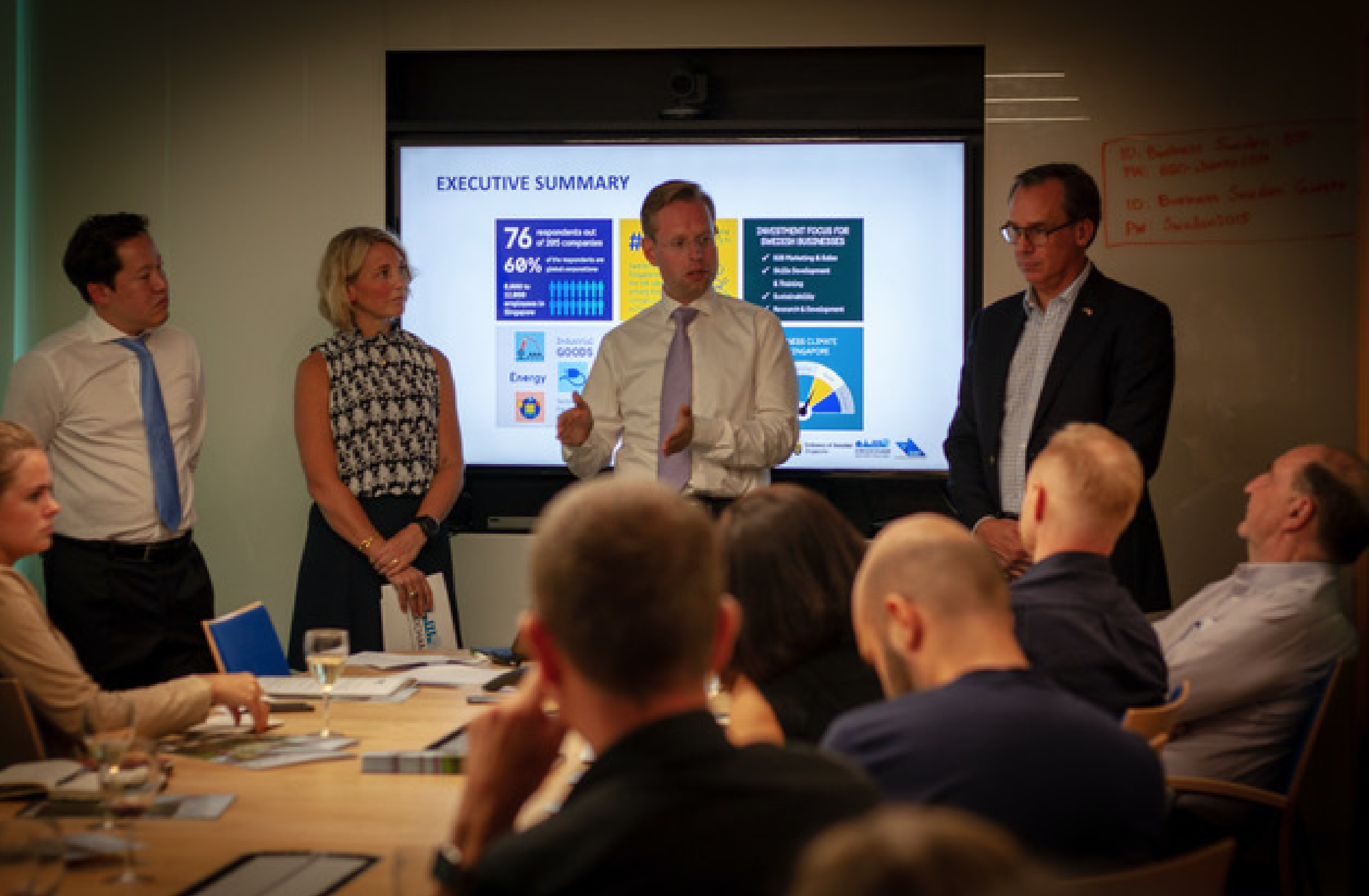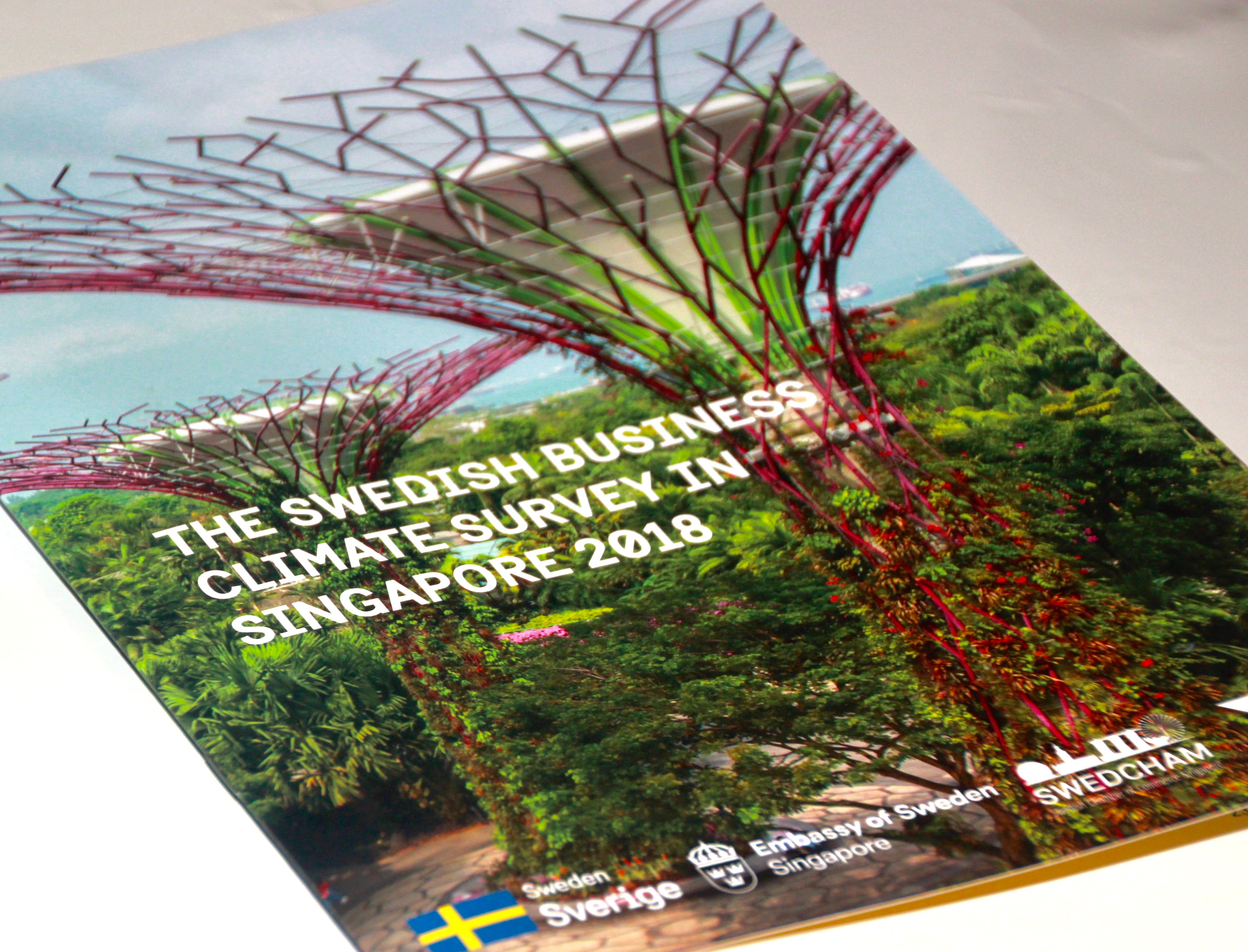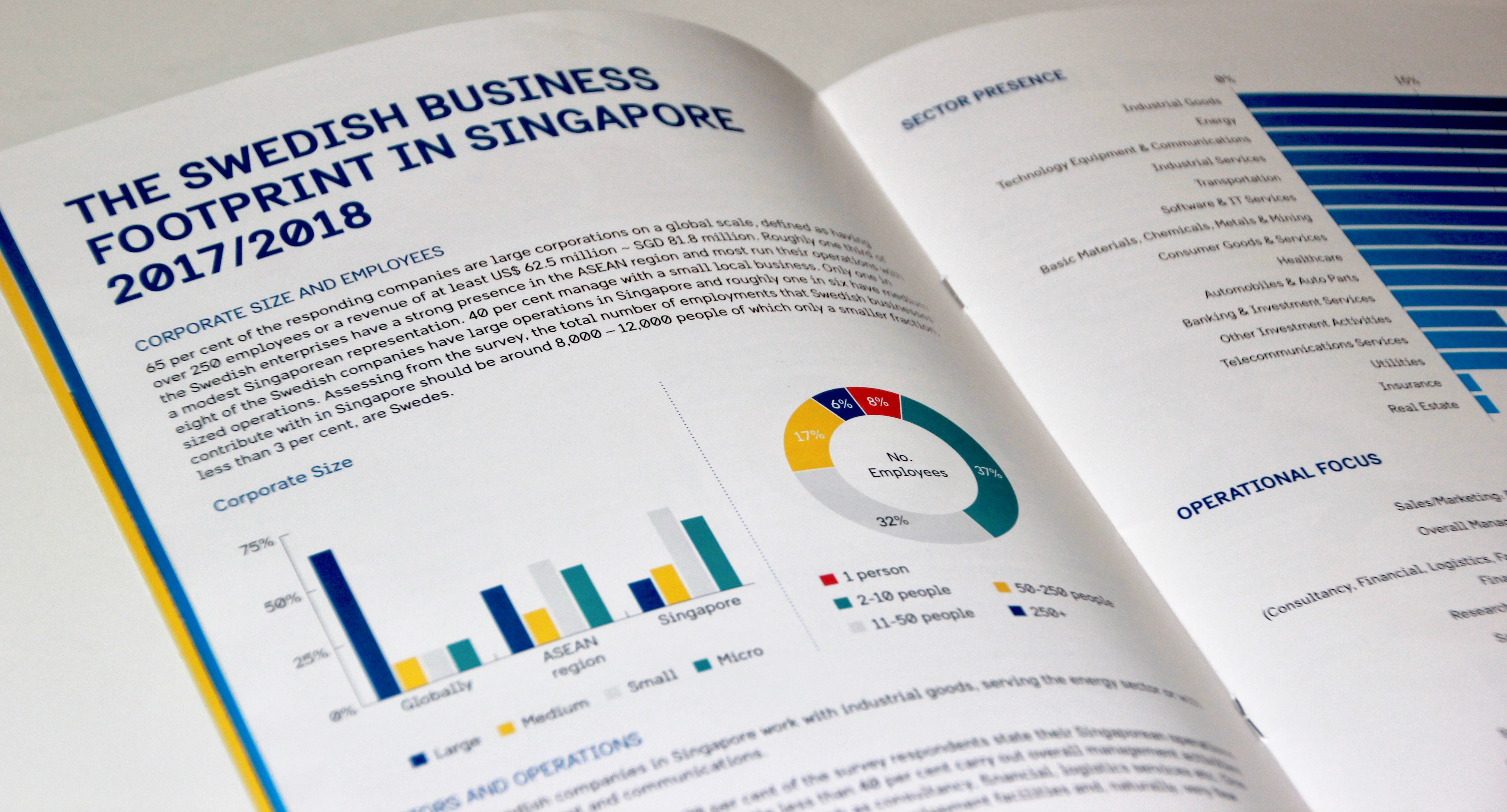The Swedish Chamber of Commerce Singapore released the first ever survey on Swedish business climate in Singapore. The survey has been produced by Swedish Chamber of Commerce Singapore, Business Sweden and the Embassy of Sweden.

Jan Stjernström, the President of the Swedish Chamber of Commerce in Singapore presented the findings of the survey and the presentation was followed by a panel discussion with the Swedish Ambassador Håkan Jevrell, Swedish Trade Commissioner Emil Akander, and Sean Yakota, Head of Asia Strategy at SEB Singapore.
The report – The Swedish Business Climate Survey in Singapore 2018 – explores the Swedish companies’ perception of the business climate and their growth projections in Singapore and the ASEAN region.
“With this report, we aim to shed some light on to the values that the Swedish business community brings to Singapore and what factors that will keep Swedish businesses in the country. We need to understand the challenges that Swedish businesses face in order to be able to address them” explains Cecilia Oskarsson, General Manager at the Swedish Chamber of Commerce Singapore.

The survey found that the two biggest challenges for Swedish businesses in Singapore are 1) the general high cost doing business and 2) to find the right talents. The latter having become increasingly acute since the Ministry of Manpower has tightened employment pass regulations.
For SEB strategist Sean Yakota, the first challenge concerning the high cost for companies to operate in Singapore is actually a sign of strength, reflecting the attractiveness of Singapore as a regional hub and that it is something corporations have to live with. However, the second challenge concerning talent supply is a problem that can and should be addressed. To do so, different approaches can be used to tackle the issue.
The ASEAN region is becoming increasingly more attractive and the survey shows that Sweden is doing well capitalizing on the growth opportunities. Significantly, the report shows that Swedish companies have high growth expectations. No less than 90 percent of Swedish companies believe sales will increase in the ASEAN region the coming three years. And as Sean Yakota has put it:
“Singapore is the gateway for Swedish businesses into the growing ASEAN market”
The strategic geographical position that Singapore possess and the position as a global trade hub links Singapore’s economy to the state of the world economy. Therefore, it was also addressed doing the panel debate that Singapore needs to continue to offer a competitive business climate.
“One way to do that is the EU-Singapore free trade agreement. I think it is absolutely key for Singapore to be part of leading the development when it comes to free trade and trade in general. Hopefully, we will see the EU-Singapore agreement into force in the beginning of next year,” Ambassador Håkan Jevrell explains.

Håkan Jevrell also explains that he as a European ambassador sends a strong signal to the EU that there is a need for a greater political European presence in Singapore.
“The European Union is by far the biggest foreign investor in the ASEAN. European companies, including Swedish companies should also try to bring the message that we are needed out here,” Ambassador Håkan Jevrell states.
The ASEAN region is developing rapidly and political changes in for instance Malaysia adds a threat to Singapore’s dominating position in the region. Still, it is important to consider the ASEAN region a whole, because competence is to be found all over the region.
“As many markets are experiencing growth numbers of six to seven percent at the same time as local governments are making progress in making it easier to do business, a question that the panel debated was what measures that Singapore needs to take to keep its position as the regional hub. Malaysia was brought forward as one example of a possible contester to Singapore’s position. The panel acknowledged that many regional markets and locations are becoming increasingly more attractive however if Singapore plays its cards right, the country is more likely to benefit from the regional development and even strengthen its position,” Cecilia Oskarsson explains.
Sean Yakota adds:
“It is not a zero-sum game – that if Indonesia or Malaysia does well it takes market shares away from Singapore. I think high tide lifts all boats.”

